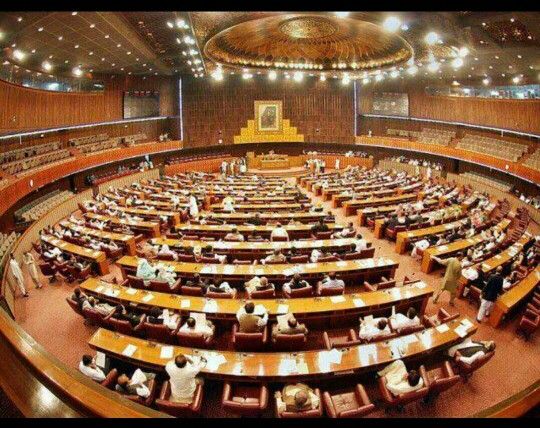The joint sitting of Pakistan’s parliament has adopted a resolution urging the holding of general elections for all national and provincial assemblies simultaneously to “strengthen the federation”. The resolution comes after a three-member bench of the Supreme Court declared the Election Commission of Pakistan’s order to delay elections in Punjab and Khyber Pakhtunkhwa “unconstitutional”. The government has already tabled a bill in both houses of parliament, which was passed in the joint session, to provide funds for general elections. Meanwhile, the PTI has protested against the decision to reject the apex court’s ruling and rejected the government’s move to pass the SC bill aimed at curtailing the powers of the chief justice of Pakistan.
The resolution adopted by Pakistan’s parliament on Monday calls for general elections of all the assemblies to be held simultaneously to ensure political stability and foster unity among the provinces. It argues that holding separate elections in Punjab, which has over 50% of the National Assembly seats, would inevitably impact the outcome of general elections to the National Assembly seats in Punjab, potentially marginalizing the smaller provinces’ role in the federation. The resolutions emphasize the significance of appointing neutral caretaker set-ups to ensure impartiality and fairness during the elections.
This resolution follows a three-member bench of the Supreme Court’s ruling that the Election Commission of Pakistan’s order to delay elections in Punjab and Khyber Pakhtunkhwa was “unconstitutional”. The court ordered the electoral body to hold elections in the province on May 14 and asked the government to provide funds to the ECP for holding the polls. The ECP had postponed the election in Punjab to October 8, citing a resurgence of terror attacks, a shortage of security personnel, and an unprecedented economic crisis. However, the coalition government rejected the top court’s decision and has already tabled a bill in both houses of parliament to provide funds for general elections.
The PTI has opposed the government’s move and rejected the decision to reject the apex court’s ruling. They claim that the parliament does not have the authority to dismiss a court order. Additionally, the government has passed the SC bill in the joint session of parliament, aiming to curtail the powers of the chief justice of Pakistan. The bill aims to give the power of taking suo motu notice to a three-member committee comprising senior judges, including the chief justice. It also aims to have transparent proceedings in the apex court and includes the right to appeal.
The adoption of the resolution by Pakistan’s parliament for simultaneous elections of all assemblies aims to promote political stability and foster unity among the provinces. However, the PTI’s protest against the decision to reject the apex court’s ruling and the government’s move to pass the SC bill may further escalate the political crisis in the country.


